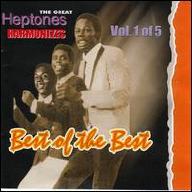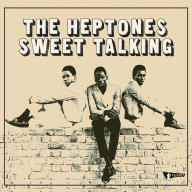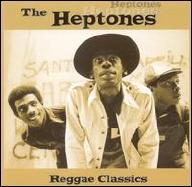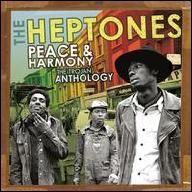Things started to take off for the group in 1966 when they caught on at Clement Coxsone Dodd's Studio One, the pre-eminent hit factory of the rocksteady era. Dodd helped train the group in the art of harmony singing, and also guided budding songwriter Sibbles, who developed a sly, sarcastic sense of humor to underpin his tales of broken-hearted lovers. The Heptones had their first hit later that year with Fattie Fattie, a ribald paean to large women that was banned from Jamaican radio but sold briskly nonetheless. They went on to record vast amounts of material for Dodd over the next five years, including their first-ever LP, On Top, in 1970. As the hits piled up, Sibbles became a staff songwriter and arranger, played bass with the Studio One house band on a multitude of recordings, and worked as an assistant producer and talent scout as well. However, by 1971, a Rastafarian social consciousness was emerging in his writing, and he had grown tired of the boundaries of working in Dodd's studio system; that sense of confinement led to an acrimonious split with Dodd.
Over the next few years, Sibbles took the Heptones on a virtual tour of Jamaica's top producers, cutting material for Joe Gibbs, Harry J, Augustus Pablo, Rupie Edwards, and many others. In 1973, they moved briefly to Canada, but soon returned to Jamaica. The Heptones signed a major-label deal with Island in 1975 and released their label debut, Night Food, the following year; it was produced by Lee Scratch Perry and featured mostly new versions of old Studio One material. The follow-up, 1977's Party Time, followed a similar blueprint, and also included an eye-opening cover of Bob Dylan's I Shall Be Released. It proved to be the group's biggest-selling album in the international market, but the 1978 follow-up, Better Days, sold disappointingly by comparison, and Sibbles departed for a solo career not long after.
The remaining Heptones replaced him with Naggo Morris and soldiered on with 1979's Joseph Hoo Kim-produced Good Life. They continued to record and perform during the '80s, though without the success they had enjoyed with Sibbles out front; gradually, other members drifted through the ranks, including Glen Adams and Joseph Forester. The original trio of Sibbles, Llewellyn, and Morgan finally reunited in 1995 for the album Pressure!, produced by Tappa Zukie. ~ Steve Huey, Rovi

















